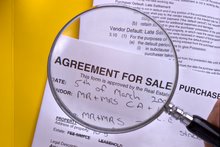Develop A Systematic Plan If Selling Your Own Home FSBO
Selling your own home FSBO is not like selling some goods at a flea market or holding a garage sale. Your home is more important than that, so the FSBO sale deserves far more attention to planning for the right outcome. Unlike a garage sale, your house will have a higher price ticket and it’s not going to sell in a few hours.
The key to selling FSBO is to be organized and to have a systematic plan for reaching your goal. One of the advantages of having a plan is that it helps you keep your eye on the ball.
It is easy to get distracted by what might be happening on the sidelines. Don’t be put off by a neighbouring property suddenly coming on the market. Be aware of what they are doing and understand their strategies and tactics (if they have any). Know their strengths and their weaknesses. Know your strengths and your weaknesses. Don’t be put off your game...just run your own race.
The key to successfully selling FSBO is to have a road map. That way you’ll know you’re doing everything you possibly can to get your house sold FSBO.
So, don’t just put an ad in the newspaper and expect to sell your house... there’s more to it than that. Have a plan, because it can be your road map to help you get were you want to go.










